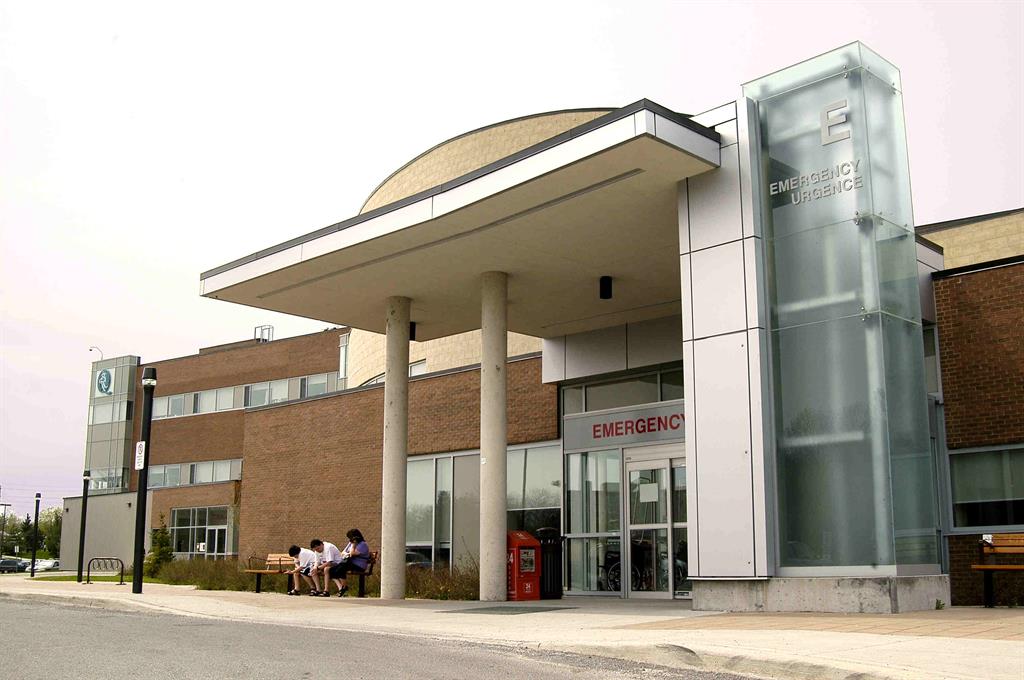If you or a loved one is in a life threatening situation, dial 911 or go to your nearest hospital Emergency Department. If you are unsure whether it is an emergency, you may call Telehealth Ontario, a free telephone service from the Ontario Government at 1-866-797-0000 and speak with one of their nurses or you should visit your closest Emergency Department.
Queensway Carleton Hospital’s Emergency Department is open 24 hours a day, seven days a week. We have one of the busiest Emergency Departments in Ontario, serving more than 80,000 patients annually. Over 15% of the patients we treat in the ED are children.
Every effort will be made to serve you as quickly as possible. There may be times when your visit or wait to see a care provider in the ED may be delayed due to a high number of patients seeking medical attention.

On this page:
Coming to the Emergency Department:
Peak viral season:
Coming to the Emergency Department (ED)
What to Bring
- Your Ontario Health Card
- Your list of current medications
- Please leave any valuable items at home
What to Expect
Upon arrival in the ED, all patients are assessed by a Triage Nurse who will evaluate how quickly you need to be seen and treated. This process is known as “triage”. Triage is a system to identify the sickest patients so they can be seen first. The Triage Nurse will make their assessment based on a history of your illness or injury and a review of your vital signs.
The Emergency Department does not function on a first-come, first-served basis. There may be times that someone who arrived after you is treated first. The Triage Nurse uses a tool called the Canadian Triage and Acuity Scale (CTAS). Some examples include:
- Level 1 – resuscitation (obviously life threatening): Cardiac arrest, coma, blocked airway, etc.
- Level 2 – emergent (conditions with a potential threat to life or limb): Chest pain suggestive of heart problems, severe bleeding, etc.
- Level 3 – urgent (a condition or serious problem requiring emergency intervention): Shortness of breath, abdominal pain, kidney stone, etc.
- Level 4 – less urgent (conditions which because of distress or potential for complications would benefit from intervention): bladder infections, lacerations, etc.
- Level 5 – non-urgent (conditions which are non-urgent and/or which might be part of a chronic problem): Diarrhea, insect bites, dressing changes, etc.
While You Are Waiting
- If your condition changes and you begin to feel worse, tell the Triage Nurse immediately.
- Do not leave the ED without first telling the Triage Nurse. It is important that your illness, injury or condition be assessed before you leave.
- Do not eat or drink anything until you ask the Triage Nurse as some tests cannot be done if you have had anything to eat or drink.
- Please leave small children at home in someone else's care.
- Have only one family member or friend wait with you.
- Do not use your cell phone in the hospital. Use the public telephone in the Emergency Department if you need to call someone.
Other ED Resources
Peak viral season — colds, COVID-19, flu, and RSV
Every year during the winter months (you might hear health-care professionals call this “peak viral season!”), many people catch the common cold, COVID-19, RSV and influenza viruses, as well as other respiratory infections.
Here are some resources to help when you’re sick from a respiratory virus.
Emergency Department Alternatives:
How can I protect myself and others?
We all want to keep our loved ones safe and we all have a role to play in protecting others. Here are some of the best ways to protect you and your loved ones, and prevent the spread of infection to others.
Wear a face mask.
- In the community: Wearing a mask when in crowds and indoor spaces in the community helps keep everybody safe. Not everyone shows symptoms of cold, COVID-19, flu, and RSV, so masks can reduce the chance that others will come into contact with infected respiratory droplets and become sick.
- At QCH: Staff, volunteers, patients, and families are required to wear a mask at all times in the Emergency Department. This includes waiting rooms and clinical areas of the Emergency Department. Outside of the Emergency Department, masks are recommended but not required unless otherwise stated. Learn more about masks at QCH
Get vaccinated, as soon as you can.
- Vaccinations for adults: For more information on vaccinations, please see Ontario Public Health’s immunization webpage.
- Vaccinations for children: For more information on children’s vaccinations, including where you can get vaccinated, vaccine myth busters and helpful tips for kids, please see CHEO’s webpage.
Stay at home if you or household members are sick.
- Even if you are vaccinated against the flu or COVID-19, you can still spread infection to others. If you or a member of your household is sick, stay home until you have been fever-free for 24 hours, without the use of anti-fever medication, and are feeling better.
Wash and sanitize your hands regularly.
- Use soap and water or hand sanitizer whenever you can to wash your hands.
- Always wash your hands before you eat.
- Wash your hands after touching commonly touched surfaces like doorknobs and handrails.
- Never touch a baby or young child without washing your hands first.